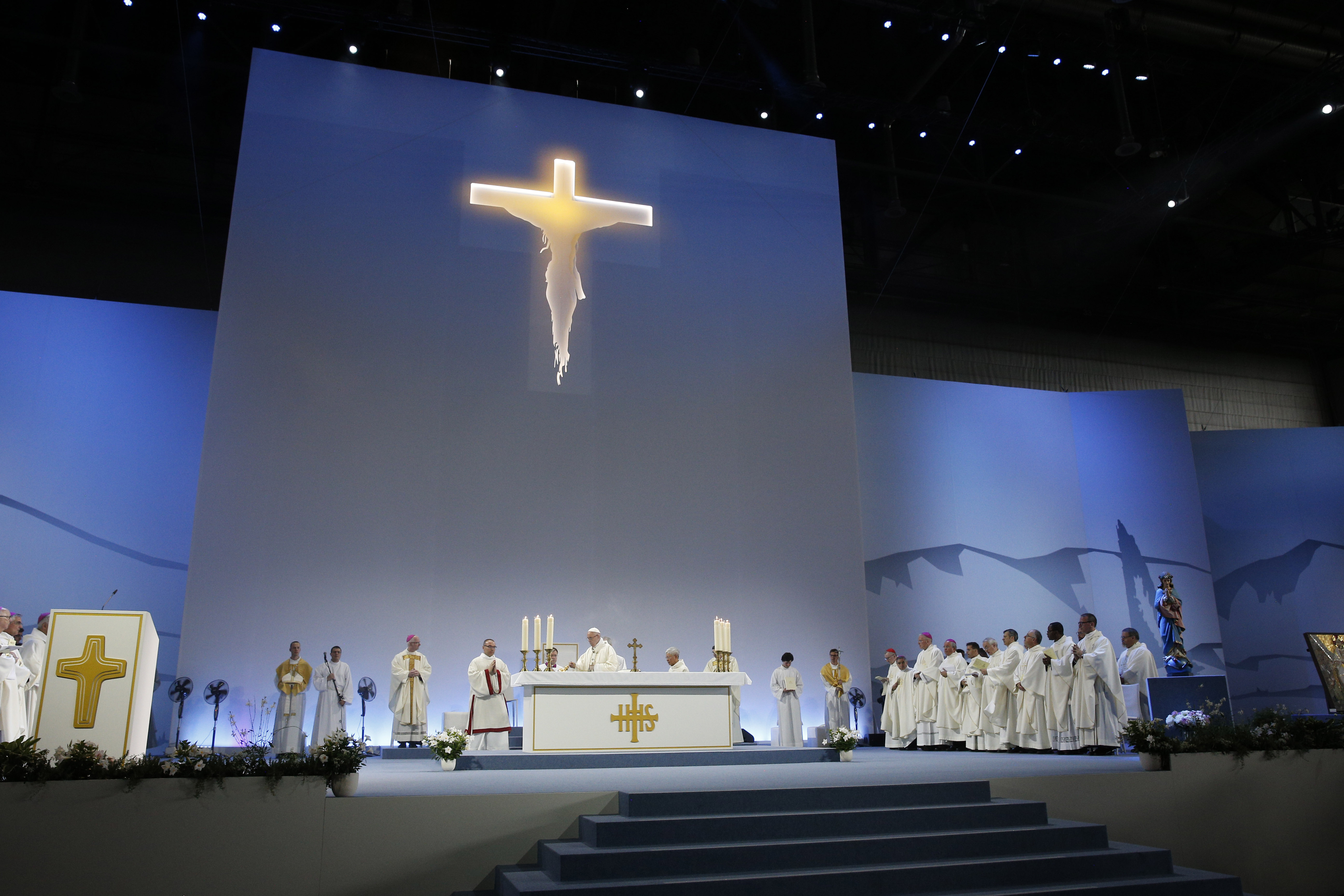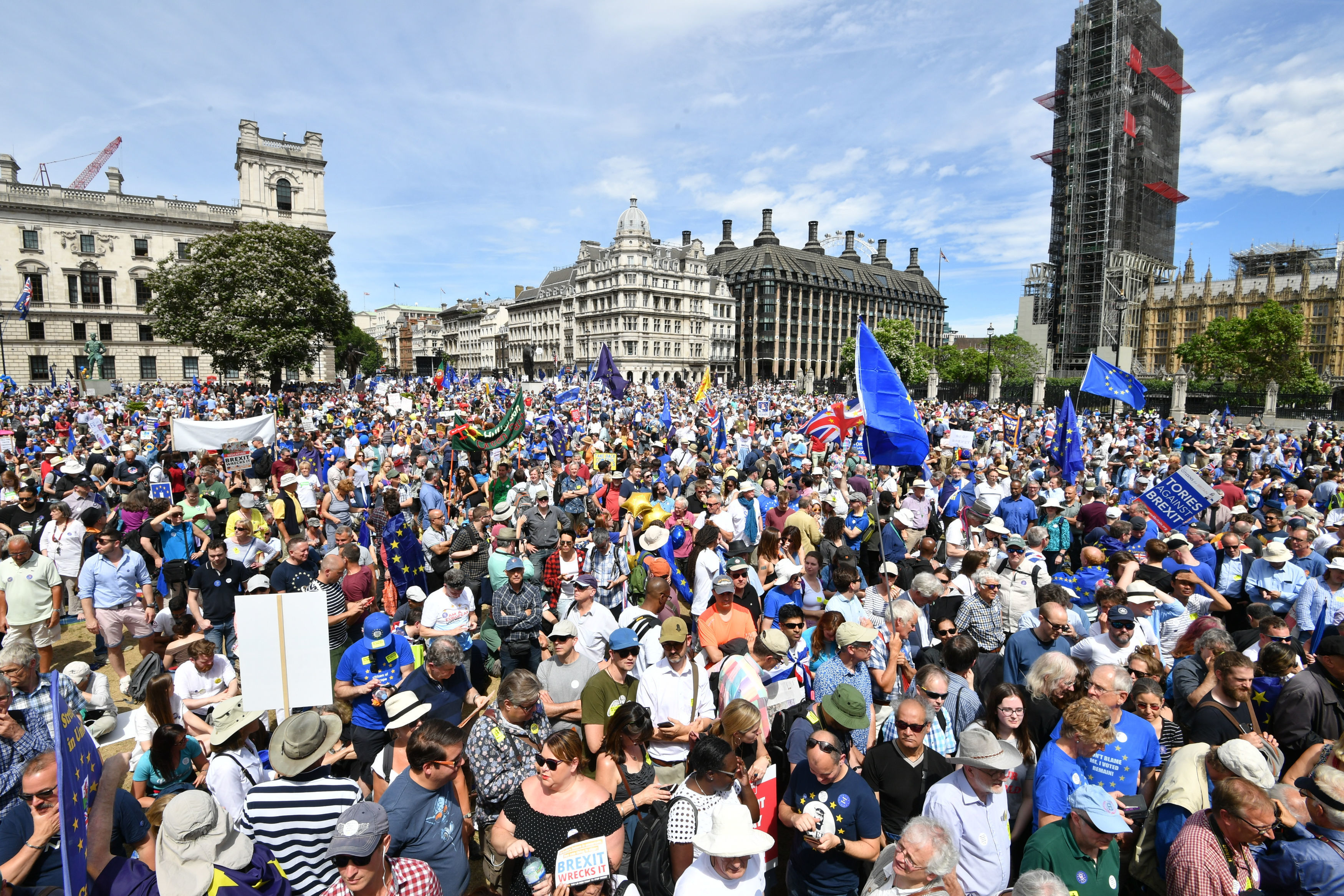I was proud to be counted among the more that 100,000 that joined the People's Vote march in London last Saturday.
Blessed by the balmy weather, it was a good natured, good-humoured festival of democracy, bringing together a cross-section of ages, races, and professions, cutting across party lines from greens and lib dems to moderate conservatives and labour without thankfully the presence of any agitprop anarchist for whom any demonstration is just an excuse to provoke confrontation.
The size and energy of the march, extending from Buckingham Palace via Pall Mall to Trafalgar Square, and then along Whitehall to Parliament, dwarfed the nationalist march by hard-core Brexiteers which mustered a couple of thousand supporters, members of UKIP and more extreme right wing groups.
Not since the war in Iraq, and before that the Poll tax demonstrations, had a London mass protest so visually captured the public mood. Two years on from the Referendum, the rally was evidence of a widespread sense of disenfranchisement at the way the British government has been handling the Brexit negotiations, ignoring the warnings of senior civil servants and major employers and many ordinary citizens that the UK is heading for potential disaster unless it rebuilds its fast deteriorating relationship with the EU.
The demand of the rally that any outcome of the negotiations be submitted to a second referendum, with voters being given the option of supporting whatever Brexit deal might emerge, or staying in the EU, seems to me to be both sensible and just.
For me the weekend rally was a belated uplift – a reminder that the project of Europe at its best is all to do with solidarity, building bridges not walls. I breathed a sense of the common good, like a refreshing stream, pouring through the rocky path of Whitehall and the political minefield of Westminster.
The last two years has had me submerged in an existentialist crisis, with a deepening sense of looking in a potential abyss. As the son of a British father, and a Spanish mother, born in Madrid, nationalised in Britain, and brought up straddling cultures, I face, in my status as a pro-European Brit, the prospect of break up.
I never imagined it would come to this. Each of my parents lived the trauma of European war. My father lost relatives in the first and second World Wars; my mother lost friends on either side of the Spanish civil war, before being transported on a British frigate to temporary exile in France. She arrived, a young immigrant newly wed to my father, in 1946 in a London that that had received exiles and immigrants for centuries.
Thanks to my father, my family grew with a positive sense of the Britain, its exemplary democracy, its engagement with the world, with an understanding of the huge debt the common good owed to totemic figures from John Locke to Winston Churchill.
Churchill was not only a great admirer of Britain’s imperial past, he also developed into an impassioned defender of a united Europe, seeing Great Britain as its defender and promoter and then accepting its role within it. I think of Churchill now whenever I hold my UK passport, proud to be European and British, although the concept has been under severe strain in the last two years.
If I was among the many that marched on Saturday, it is because many of us are more convinced than ever that we were right to vote to remain, while others who voted to leave now have severe doubts, some to the point of changing their minds.
For now, in the absence of any agreement, British diplomats are attempting to put their best gloss on a dog’s dinner.
Recently the British ambassador to Spain Simon Manley told a seminar in Madrid that the bilateral relations between the UK and Spain were "firm" even before the EU existed, and reassured his audience that his government would do everything possible to avoid any traumatic outcome in the ongoing negotiations with the EU.
Well, the fact is that negotiations so far have left British and Spaniards no clearer about their future. That is just one of many problems within the wider EU. A big one here is that there are some 70,000 Spaniards living in the UK, many working in sectors like the NHS, with another 12,000 students and 5,000 scientists working in a wide range of joint investigations with their British counterparts. There are also big Spanish companies operating in the UK including Ferrovial (airports), Santander(banking), Telefonica (Communications) and Iberdrola (Renewable Energy). Meanwhile in Spain, there are 300,000 British residents, and 19 million British visit Spain as tourists every year.
And yet Manley felt he had to add, almost as a warning, that the UK had never felt “comfortable within the EU", as if our membership was a marriage of convenience in other words, where divorce might be liberating for both sides. This is misguided perception in my view. Because when I look at the disorder I believe Brexit is threatening Britain with, I cling to Pope Francis’s wise words in Laudato Si: “We have to recover a belief that we all need each other, that we have a shared responsibility, towards others and towards the world.”
As I marched on Saturday, I found myself wanting to go on believing that more unites us with Europe than divides us from it, and that there is much we can learn from each other to make it a better European Union, not least in developing a coherent, practical and humanitarian immigration policy.
For lest we forget, the European Project was founded on principles of peace, solidarity, subsidiarity, and a shared improvement to our welfare, all in sharp contrast to the traumatic world disorder of the first half of the twentieth century with which we are again threatened by Trump, Putin and nationalist movements throughout Europe.
While there is no doubt that the principles of the EU founding fathers have been diluted and undermined over time, to dismiss the European Union as a monstrous super state crushing our liberties and well-being is a gross distortion of reality. There is an urgent need to recover the common good. And people in Britain are marching for it, thank God.
Jimmy Burns, OBE, is a journalist and author, chairman of the British Spanish Society and a director of The Tablet. His books include a biography of Pope Francis –The Pope of Good Promise and the just published Cristiano & Leo This commentary is written in a personal capacity.
.



 Loading ...
Loading ...
What do you think?
You can post as a subscriber user ...
User comments (0)